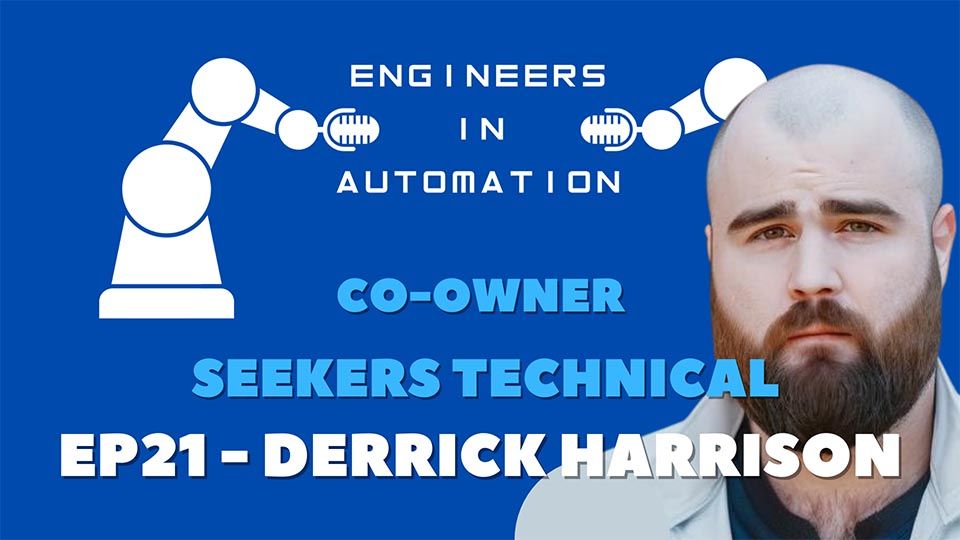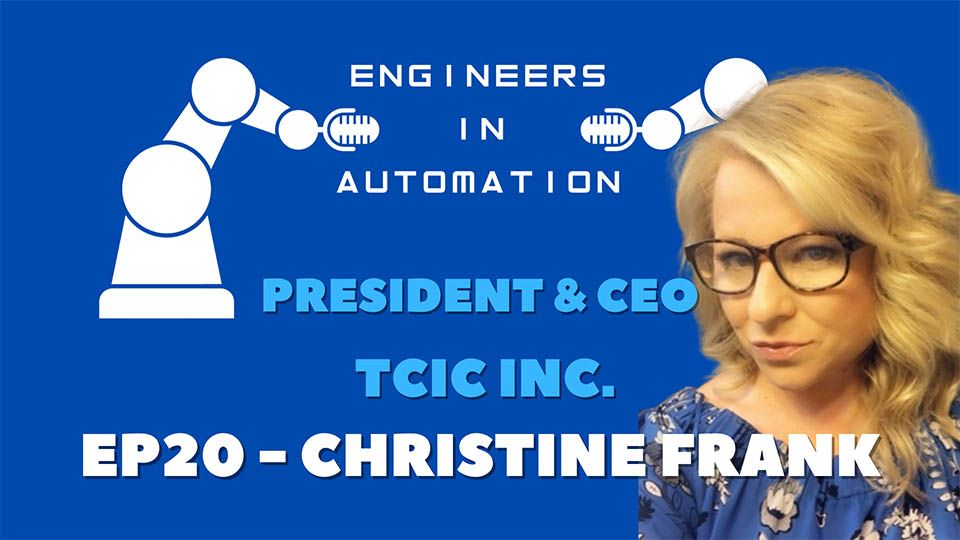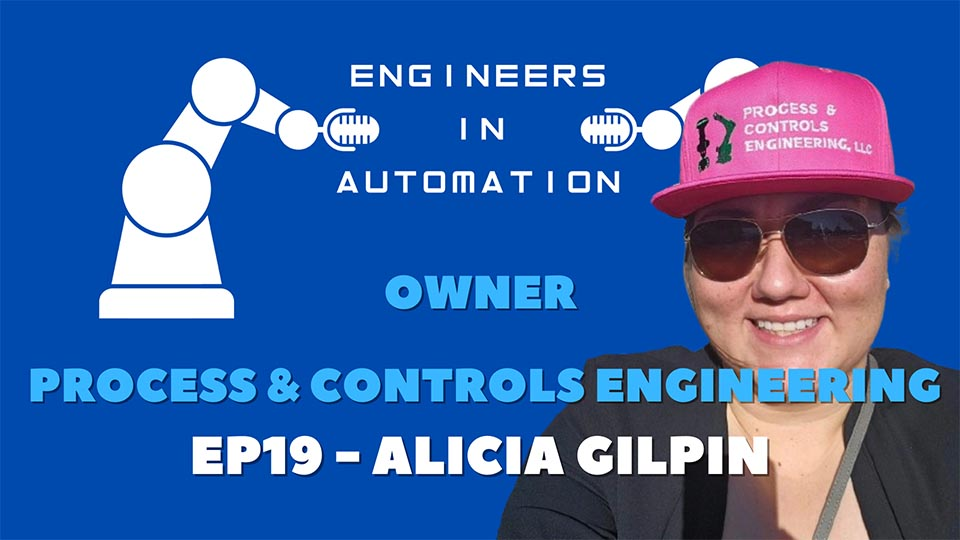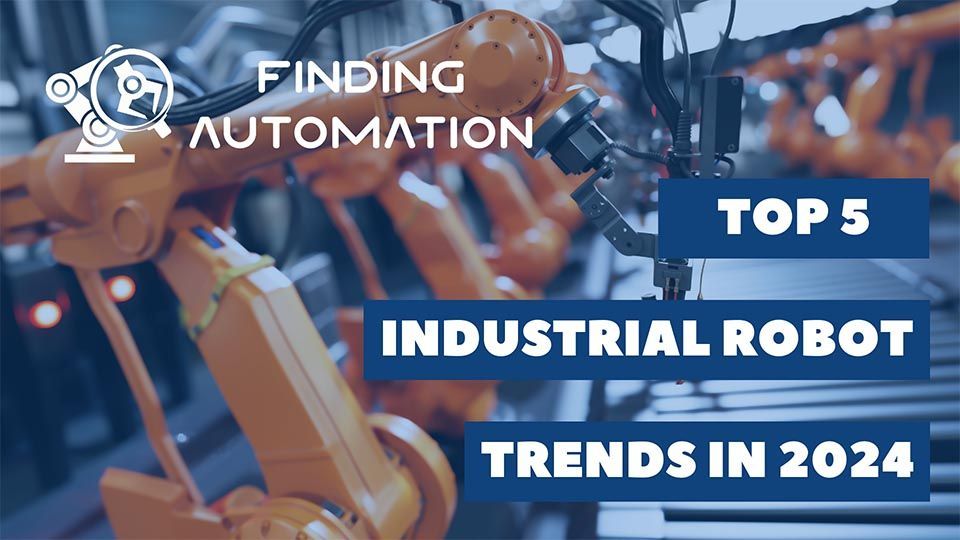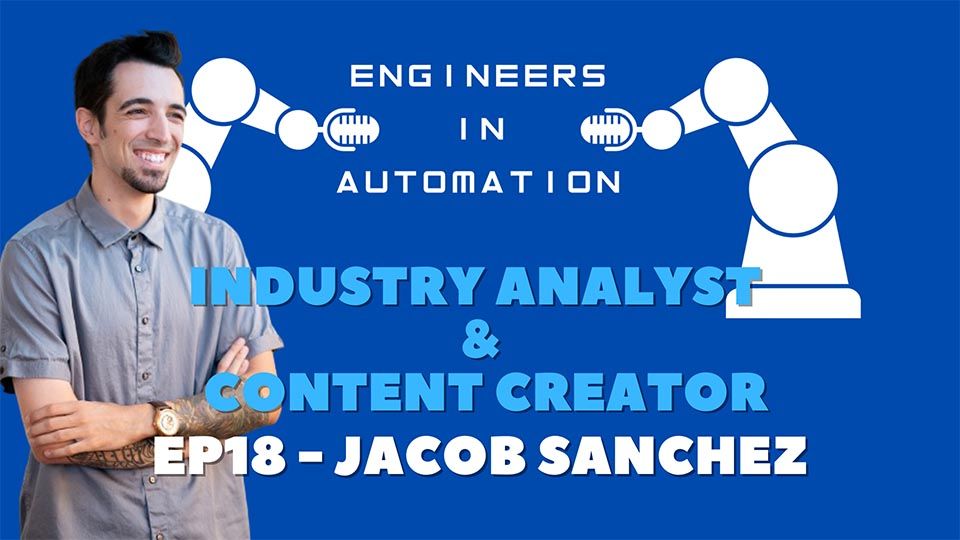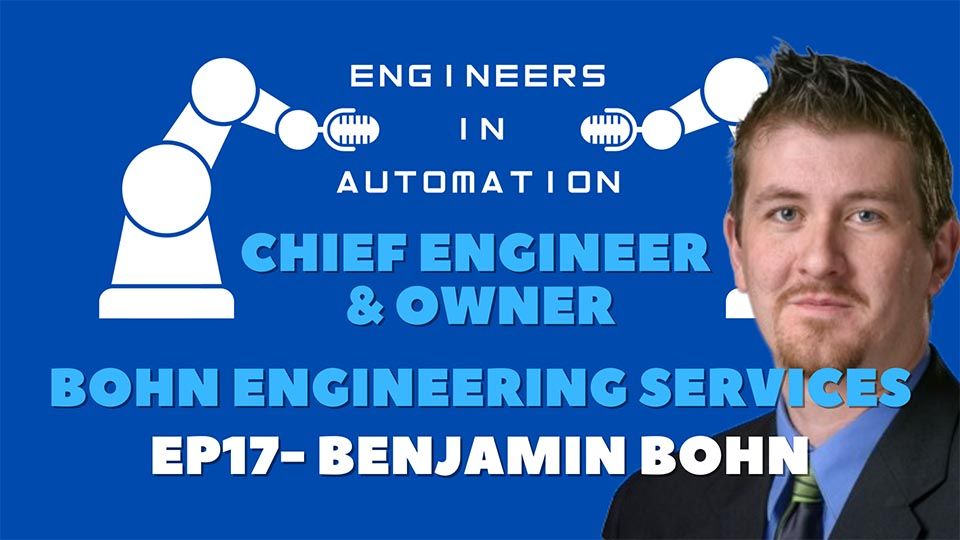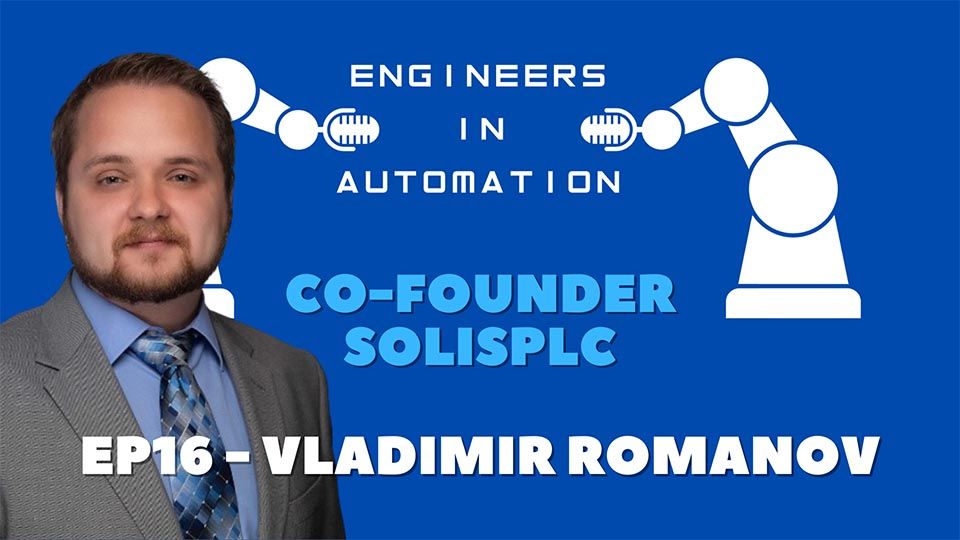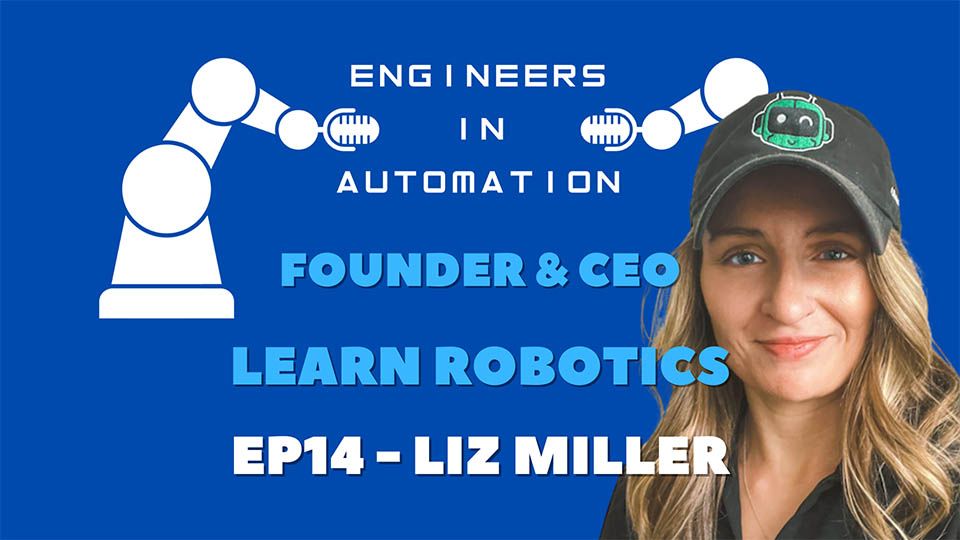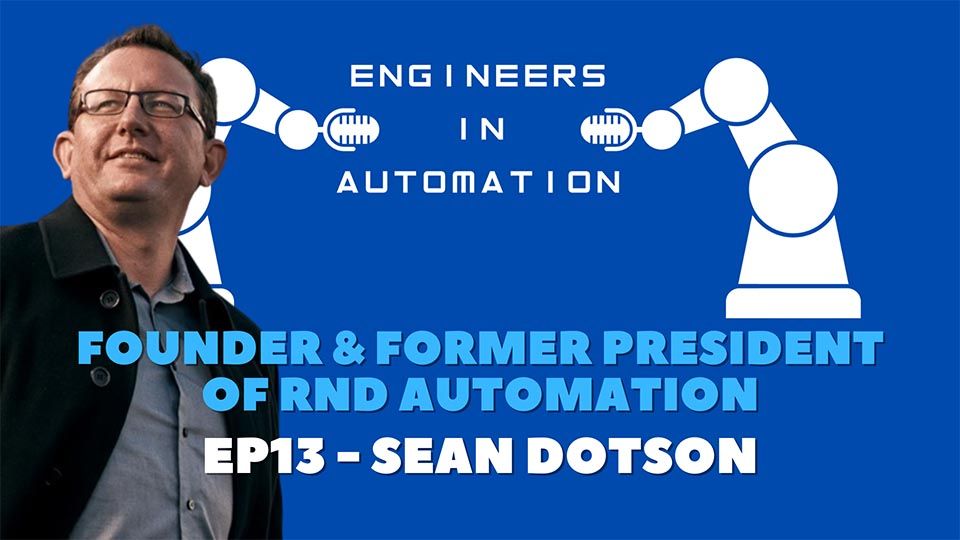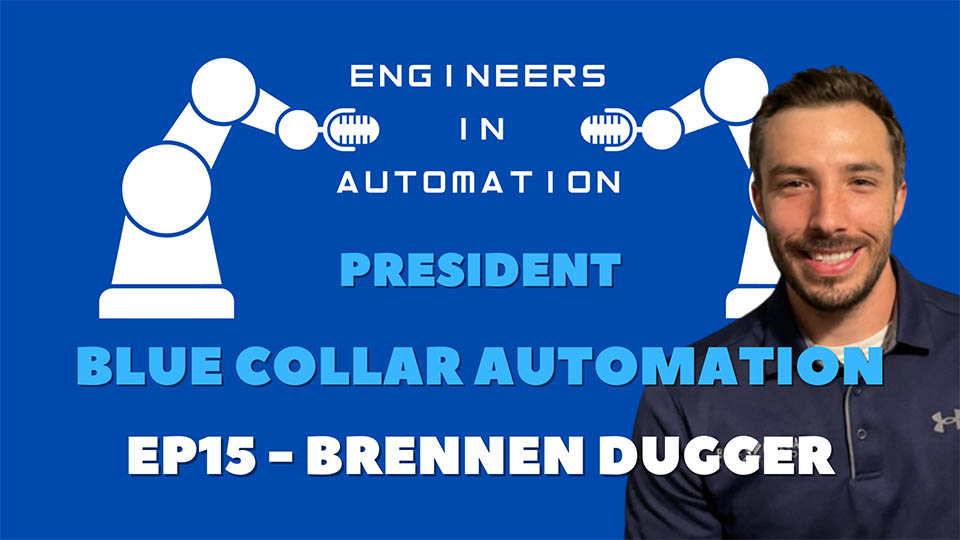Keegan Dillon – Host (KD): Hi, my name is Keegan, and I'm your host of
Engineers in Automation. On today's episode, we're going to talk with Jared Stanley. He's the founder and CEO of Adinkra. We're going to talk to him about why he started his company. We're also going to talk about some of the advantages of being in Colorado. And then we're also going to talk about some of the industry focus that he has with his organization. Now let's go talk automation!
KD: Hi, and welcome to today's episode, I'm super excited to have Jared Stanley here with me today. He's the CEO and founder of Adinkra. Jared, welcome to the show!
Jared Stanley – Guest (JS): Thanks for having me.
KD: Yeah, no problem. And just want you to give everybody just a brief little introduction about yourself.
JS: Yeah, like you said, Jared, I’m CEO of Adinkra, which is a company that started back in 2020, in Denver. We focused on robotics and AI, product development, everything from design, to, you know, deployment and support of those solutions for our clients. And my background is actually in physics. I have, you know, a master's in physics, and then went and did a lot of data science and robotics work before founding this company.
KD: Wow. And then, yeah, what is your business focus then, with this organization?
JS: we're focused on rapid prototyping and development of new robotics and AI products. So, we've got, you know, project managers, engineers, subject matter experts, really a team of people that can help design and then develop those solutions. And our goal is really to just get those out to market as fast as possible, so they can start making an impact for our customers.
KD: Cool. And I, you know, I always like to ask, what kind of, you know, led you down the path? To start Adinkra?
JS: Yeah, that's a great question. Um, you know, I, I really, you know, how technical do we want to go?
KD: Hey, as deep as you want, man!
JS: I think at a high level, there's a big opportunity right now, for robotics and AI type of products, you know, we're really solving intelligence, there's a lot happening in that space right now. And the potential of that for, like, human civilization is just huge. So, there's definitely kind of the impact aspect of this, that I really believe that this industry is just well positioned to make a huge impact on the world in a lot of different ways. You know, free up humans from all kinds of things we don't want to be doing and like, kind of accelerate our development as a species. But on the maybe more technical side, I've always been really interested in intelligence, and how we learn and how we can create systems that can, you know, accelerate that learning.
I got into physics, because I wanted to understand the way the world works. And I realized very quickly that I am not smart enough or fast enough. And I thought maybe there's, you know, other solutions out there that can run faster and learn more and like, how can I help build those solutions? So really, I think, kind of what's exciting to me is working in the field of intelligence, and then deploying that in a way that's meaningful for people. And that's ultimately why I started the company.
KD: Yeah, it you know, I think, in the last six months, I don't know if you've noticed, but I think AI has just been such a big key word and buzzword from every organization. So already having your foot in that door for a few years now. You know, that's probably something that you can kind of, you know, pat yourself on the back for kind of being a leader, in the forefront on that. I would say.
JS: Yeah, it's exciting times. There's so many, it's really great that we have the internet now can access all this incredible research and all these different groups can communicate. It's a really cool time to be alive.
KD: Yeah, absolutely. One question I do have to ask, though, what made you choose Colorado? What are some advantages of it? Right? When most people think manufacturing or industrial automation and those kinds of things, they're thinking, you know, Midwest, you know, some of the Michigan and East Coast or down south, or California for AI, you know, what, what made you choose Colorado?
JS: Well, I grew up here, I grew up in Fort Collins, which is a town about an hour north of Denver. The company is founded in Denver, and I think that there are, you know, there's a lot of tech hubs sort of emerging all around the world right now. But Denver is one of them. It's been growing a lot. There are a lot of great companies in Boulder that are coming in. So, I did my undergrad, and a lot is happening in Denver as well for founders like me, so I think it's a really awesome ecosystem. But of course, there are other great ecosystems out there, too, like Pittsburgh and all kinds of other places.
KD: So, in our area, right with automotive, we got the autonomous driving stuff is all over around here. You know, that's obviously huge. So, I'm sure you definitely have advantages there, then which is good to hear.
JS: Yeah. And we were lucky in some ways because we started the company right when COVID hit, which is an awkward time to start a business. But it also made us build this team in a way that's fully remote. So, we actually do work with people all over the country, and even in other countries, but, you know, are set up to be a fully remote team. So, headquarters are in Colorado, but in some ways, it almost doesn't matter.
KD: Yeah, cool. And I guess that, again, just rolls right into my next, how large is your organization? Now?
JS: We're about 15 people, we've got a mix of full-time people, mostly in engineering, and then a bunch of different people we bring on for different kinds of skill sets. So yeah, about 15 people we're working with pretty regularly across a lot of different projects.
KD: Cool. And, you know, how are you bringing those people in? Are you looking, you know, university, job boards, postings, things like that? How are you identifying these candidates? Because right now, it seems like such a difficult time to find people and then especially in the automation and robotics industry, and then find, you know, good people, right?
JS: It's very hard to find good people, it's very hard to find good engineering talent. I think universities are always a great source of kind of the, you know, I really, I really like working with university students, because they have a lot of passion and a lot of imagination, which I think is very positive. However, I think that it's really important to find people who have had several years of experience and have really dealt with some of those problems to really sharpen the skill set. And that's actually quite a bit harder to find. I think, you know, in person, events and other organizations that focus on that are really critical for getting that talent, because the right person can 10x your productivity over someone else.
KD: Yeah, absolutely. And then you kind of touched on it there about your projects, you know, how many projects are you guys working on currently? Can you discuss that at all?
JS: So, most of them are under some form of an NDA or another, I can't go into too many details. But yeah, we're working on probably about a half dozen projects at the moment, a lot of them are in the autonomous systems kind of space. So, we're doing a lot of slam a lot of navigation-type stuff, a lot of simulation. And, yeah, we were actually working like healthcare, defense, construction. So, a lot of different areas at the moment.
KD: That was going to be my next question, what areas? What industries are you working in? So, you kind of touched on some of those is, is there one or two that are kind of lead the way that you see? And a few that may be further behind?
JS: It's a good question. You know, a lot of our work is around autonomy. And I know that's kind of a buzzword, I actually prefer the word automation, because I think true autonomy is pretty hard to achieve. But where autonomy is making the most progress is in structured environments that are kind of lower dimensional, let's say, than the real world. So, construction, for example, you know, you can do a lot of things, and construction or mining, we've done some work with inspections and utilities, that are, you know, really structured environments that are still hard problems. But we're able to build systems that can like fully automate some of those processes, which is really cool to see.
I think there's also a lot of work going on in the UAV space. Right now, we do both commercial and defense there. And people are really trying to build these platforms that can just accomplish a huge number of tasks. So, we're seeing a lot, a lot of interest there and some of the simulation work that we're doing.
KD: Yeah, cool. And then how do you know you find clients or clients come find you? How does that work? You know, they just kind of word of mouth. How are people finding your company?
JS: Good question. I think that the best form of client acquisition, I've found, is just being a real person and having interesting conversations. I go to a lot of expos, and events, and founder meetups. And I'm always surprised by the people that I seem to run into that seem to have some sort of cool project or opportunity that I can help them with. We've also gotten a lot of referrals from existing clients, which has been helpful. But that's actually probably the best, the best form I've found.
KD: Yeah. And, you know, within your organization, what are some of the goals that you've laid out for yourself here for the rest of the year? We're almost halfway through the year. You know, how are you? How do you set goals as a business owner?
JS: Well, I work pretty closely with my team to figure out, you know, where they're at, and kind of how, how we as an organization. You know, we're a relatively small company. So, there's not a lot of degrees of freedom. Sometimes, but what we've, you know, what we've kind of been focused on really for this year is developing a lot of our synthetic data and simulation solutions. So those are basically solutions that we've built to accelerate our own development to create custom computer vision models, or build digital twins of these robots and kind of get them up to a point where they're pretty safe pretty quickly or pretty capable pretty quickly.
So those two solutions that we're working on synthetic data and simulation, those are our major technical goals for the end of the year, we've already got clients that are using those platforms, but we're trying to really work with them to understand the use cases, flush them out further and, and deploy them ultimately, to more places. Also, exploring some partnerships with universities and so forth.
KD: Yeah, I think you touched on that right there. There's a large opportunity for university outreach; whether it's in robotics, automation, or AI. There's a massive need for it. And sadly, one thing that I think, you know, many of us have noticed is, we keep saying, hey, we need better-prepared students better-prepared classes. But yet, there still isn't any change. So, you know, I'm hoping, eventually, companies like yours, and more, keep reaching out and don't give up yet. But keep trying to, you know, force that change on these universities, because it seems like it's so difficult. You know, it's one thing that I've kind of noticed. At least, I don't know if you've seen any of that on your end at all.
JS: Yeah, I think universities are a great, great resource because they have different incentives than a business, right, they've got like more time to do research, they've had different structures, so that they have an environment where you can work with some really talented people, and some talented groups and just, you know, find ways to kind of merge industry and research together and find the solution.
So, I love working with university students and with research teams. So that's something that we're really exploring heavily this year to try to, you know, get new ideas, get different types of funding, and then figure out how to actually transfer that technology and those kinds of cutting-edge ideas out of the university into the, into the industry.
KD: Get them up to speed, man, that's what I would love to see. I do want to ask, you know, you are a founder, you are a CEO. What were some of the struggles that you saw, you know, building this company that you've had?
JS: The struggles have been many, I'm always surprised by how new forms of struggle emerge seemingly out of left field, this is my first company. So, there's, it's only about three years old at this point. So, you know, relatively new to this process. But I think, you know, there's just, there's just a lot to learn. And what's really helped me is trying to focus on seeking that truth in all cases, and trying to figure out how something should work and sort of, you know, what, where's the limit of my own knowledge, whereas when I need to bring in someone else, versus something I should do myself, and there's, there's just been a lot of challenges with kind of learning things for the first time. I often tell my other friends that you just you have to pay a lot of money to make mistakes, but they're kind of unavoidable. And once you've gotten through them, you're a lot stronger, and you're able to deal with a lot more.
KD: Yeah, that's great, great advice. You know, we’ve talked about the struggles, what are some of the things that you've definitely enjoyed being, you know, the frontman of an organization?
JS: I think it's really an amazing opportunity to be able to kind of close the gap between imagination and reality very quickly, right? You kind of can direct things, you can get these resources in place to create things in kind of your own way. And I feel like starting a business is one of the most efficient ways to take an idea and have it create an impact in the world in a positive way versus having to go through, you know, a lot of other hoops that other organizations have, or maybe being limited in your role a little bit. So, the intention of us building this company was always to create an environment where engineers could, you know, really close that gap, innovate, get those ideas out there and make that impact rather than kind of waiting and having things you know, take years and years to see the light of day.
KD: Yeah, yeah. And that's, that's definitely, you know, a good side of things. And I always explained to a lot of people, you know, growing up, I always enjoyed Legos, and I think that's why I'm in this industry, but you know, you like to see nothing, you build something and then you get to play with it. Right. So that's always something I've found, I think with a lot of other business owners like yourself as we sort of just liked that process, right? We like to see you know, a problem arise. And then we create a solution, and then we see that solution being implemented, right?
JS: Yeah. And I love Lego’s favorite toys, kid as well.
KD: See, there you go!
JS: So it's like, it's like art. There's this like negative space of just amazing solutions and ideas that I think as a business owner, you're kind of in this position where you're kind of in between the engineering the business side, and you can kind of make these things happen. And it's really exciting to like I read a research paper and then my brain immediately goes to, “Well, what are the 10 like super cool problems I could solve with that in the real world?” Go have those conversations, and then get a project. And it's like, wow, I'm actually solving that problem.
We had a proposal, we were writing for invasive fish species that could be solved with this cool robotics thing. And it was just an amazing thing. My dad's a wildlife biologist. I’ve been super passionate about conservation my whole life, to be able to apply robotics to something in that space was just amazing. And it was just random, that I learned about it.
KD: That's cool, like it opens up another door, right? Something might be created, then to help save some things where, you know, you know, just a new business could be pulled out of thin air almost right? That's, that's a really cool thing. One thing I did want to ask though, you know, if somebody did want to come work for you, you know, what's that process? What's that look like? You know, what's their day-to-day activities? What, you know, what are they going to be working on?
JS: So fundamentally, we're a professional services company, we do engineering services. And what that means is that people will usually get exposure to a lot of different projects, they will not be put into, you know, one project that's five years long, where they're only doing one thing. We're also pretty small, and a startup. So, you know, often wearing a lot of hats at the same time, as I'm sure you're, you're experienced with.
KD: Yeah, learn fast, right?
JS: You gotta learn fast. At the same time, I think we're niche enough that over time, you start to develop some pretty good specializations. We have like a technical and a management track for people. So they can kind of dive in and sort of become the resident expert in a particular thing and computer vision if they want. Or they can take this kind of more management or product manager track and really own like an in kind of lead from a technical perspective, an entire an entire work stream entire workflow.
So the process that we usually go through is kind of standard interviews. But I think one thing that's a little bit unique that we do is we really do these kinds of take-home projects, and really look for past performance in terms of, you know, what kind of projects has this person worked in. I'm a firm believer that, like, at this point, some things are being commoditized, anyone can download and you know, a yellow model and train it, but it takes a different kind of person to be able to really get into the details and modify it and kind of overcome some of those harder challenges you encounter in engineering. So those are the things that I'm really looking for, is that problem-solving ability. Because most of the problems we have are not something you can just, you know, solve in a day.
KD: And that's a good way to put it. Engineer, your title really is problem-solver, right? Bring the solutions. Just before we wrap up here, let me ask, “Where can people find you?”
JS: So they can find us on LinkedIn, they can find us at our website,
https://adinkratech.com/. You can connect with me on LinkedIn. My name is Jared Stanley. So I'm the CEO and chief engineer of Adinkra right now. And I think we have a Twitter account (
https://twitter.com/adinkratech) as well, where we're doing some releases of new information around ROS, the robot operating system, so we'll be kind of spinning that up over the coming few months as well. But those are probably the best places to engage with us right now.
KD: Cool. Well, yeah. And I'll drop all those links in the description. So, check them out down below. And if you guys’ liked today's episode, please give us a like, comment, and share, and don't forget to subscribe. And we hope you join us here again next time on
Engineers in Automation. Thanks!
JS: Thanks.
